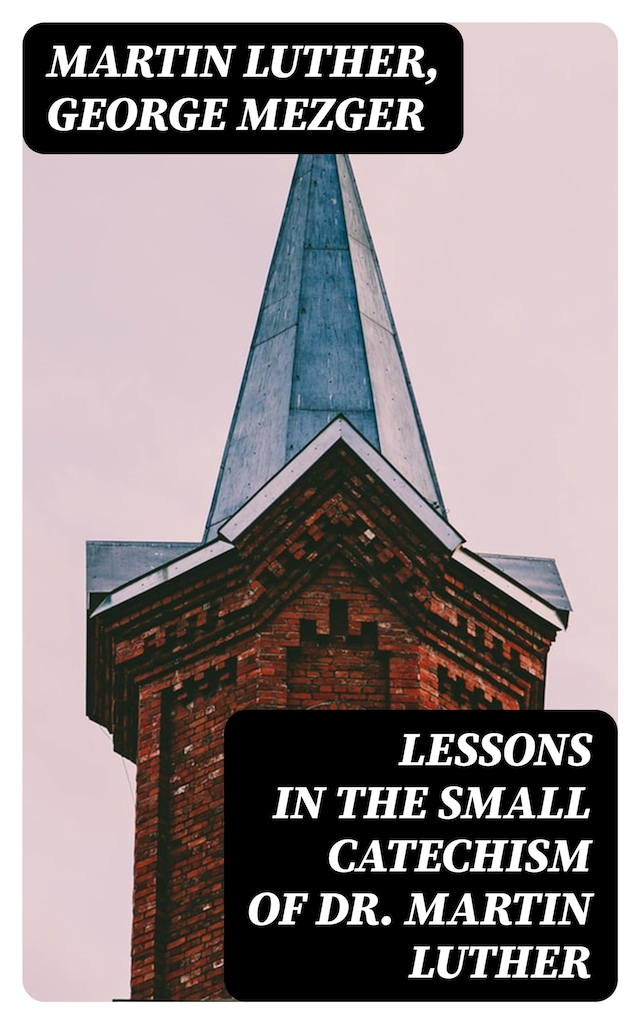
Lessons in the Small Catechism of Dr. Martin Luther
For the Senior Department of Lutheran Sunday-Schools and for General Use
Description of the book
The anthology 'Lessons in the Small Catechism of Dr. Martin Luther', meticulously compiled by Martin Luther and George Mezger, presents a remarkable exploration of the theological and moral teachings foundational to Lutheran Christianity. This collection uniquely bridges historical Christian thought with contemporary issues of faith, ethics, and society, drawing from a rich tapestry of literary formats—from fervent expositions to reflective commentaries. It stands as a pivotal work that not only delineates the core principles of Lutheranism but also invites readers into a deeper, more introspective engagement with the questions that define one's relationship with faith. The diversity within this anthology illuminates the multifaceted nature of religious belief and its expression through time, making it a significant contribution to both religious study and literary variety. The backgrounds of Martin Luther, a seminal figure in the Protestant Reformation, and George Mezger, contribute an invaluable depth to the collection. Their collective efforts encapsulate a pivotal era in Christian history, integrating the doctrinal reforms initiated by Luther in the 16th century with the enduring questions of Christian ethics and morality. This anthology stands at the crossroads of historical, cultural, and literary movements, uniting voices from different epochs under the overarching theme of Lutheran teaching. As such, it provides a unique lens through which to explore the evolution of Christian thought and the varied interpretations of Luther's foundational texts. For scholars, theologians, and lay readers alike, 'Lessons in the Small Catechism of Dr. Martin Luther' offers an unparalleled opportunity to immerse oneself in the complexities and nuances of Lutheran doctrine. It transcends a simple anthology, serving as a bridge between past and present, inviting readers into a profound dialogue with the tenets of faith that have shaped centuries of religious thought. This collection is an indispensable resource for anyone seeking to deepen their understanding of Lutheran theology, its historical development, and its relevance to contemporary issues of faith and morality.
 215 Pages
215 Pages